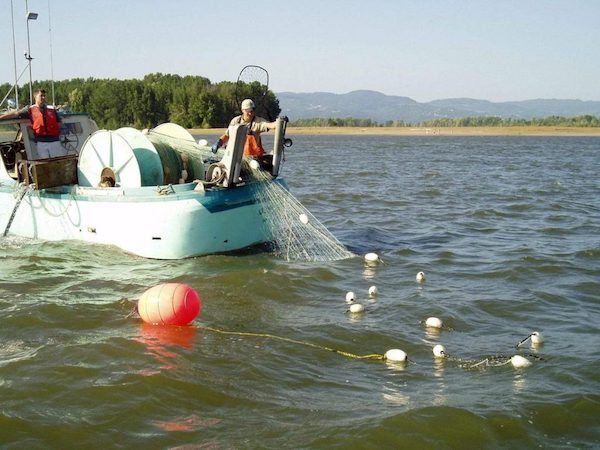
Another Columbia Gillnet Bill Hits A Snag In Wash. Legislature
A Washington Senate bill that would have banned the nontribal commercial gillnetting of salmon in the mainstem Lower Columbia appears doomed for this legislative session.

SB 5297 needed to beat this week’s policy cutoff and a stripped-down version was on the table at this afternoon’s last meeting of the Senate Agriculture, Water, Natural Resources & Parks Committee before the deadline, but in the end no vote was even taken.
The bill had come at the request of Governor Jay Inslee and was eagerly sponsored by Sen. Kevin Van De Wege (D-Sequim), who at last month’s public hearing said he’d never been a fan of gillnets and that given the “tens of millions of dollars a year (spent) trying to save salmon,” the fish should be harvested more selectively.
It would have also shifted gillnetting “impacts” on ESA-listed stocks to conservation or mark-selective sportfisheries, along with created an account to fund the continued voluntary buyback of Washington gillnetting licenses.
But in the amended version of 5297 Van De Wege put forth today, the gillnetting ban and conservation elements were removed and the bill was retooled to focus just on the licensing aspect, with the effect of essentially continuing to remove licenses to gillnet the Columbia or limit them to Grays Harbor or Willapa Bay.
A budget proviso passed by last year’s legislature has effectively shrunk the pool of Washington nontribal gillnet licenses with Columbia River landings – either fall Chinook in the mainstem or kings or coho in so-called SAFE areas – from 91 to 14. How the buyback program has been managed by WDFW has angered Van De Wege and other senators.
While 5297 drew support from sportfishing and conservation organizations, it was opposed by Columbia netters and seafood processors, while tribes testified that it denigrated their preferred way of fishing. At the hearing, 1,385 people signed in as pro, 153 con, but today’s nonaction suggests the bill had nowhere near enough committee support to bring to a public vote.
In the end this year’s “narrowed” nontribal commercial gillnetting bill didn’t get quite as far as one in 2019 that made it out of committee but died in Senate Ways and Means.
Columbia River salmon fisheries are jointly managed with Oregon and tribes in the basin. State managers say they can manage fisheries regardless of gear type. Reforming harvest has been a goal of both states’ Fish and Wildlife Commissions since 2012.
Also of note this afternoon, SB 5699, which would have increased pay for the Washington Fish and Wildlife Commission from $100 to $200, was also scheduled for action in Senate Agriculture and Natural Resources Committee but none was taken.
Earlier this week, a somewhat similar commission pay bill in the House, HB 1699, passed out of the lower chamber’s Agriculture and Natural Resources Committee on a bipartisan 10-0-1 recommendation. It would establish an annual salary for members as a means to draw more than just retired state residents with an interest in critters and conservation to the citizen panel that sets WDFW policy and hires and fires its director, as well as potentially make the commission more diverse.
And finally, there will be a key vote tomorrow on a wolf delisting bill. HB 1698 basically fast-tracks state delisting in Northeast Washington counties, where the vast bulk of the state’s wolves and packs are and which is way out ahead of reaching population goals under WDFW’s statewide wolf management plan, but is being held up by slow colonization of two other recovery zones.
The Olympia Outsider™ is expected to have a rundown on all the fish- and wildlife-related bills that do and do not meet Friday’s policy cutoff, if he doesn’t cough himself to death first.

